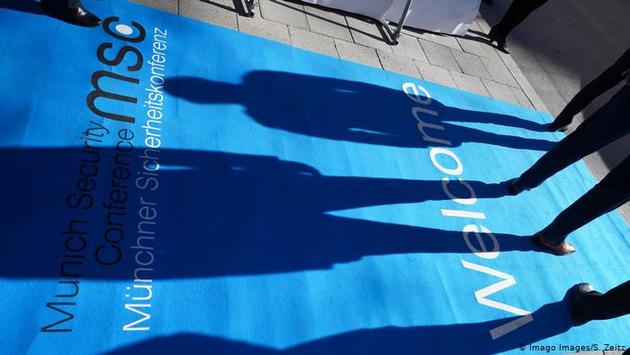Donald Trump's four years as US president shook the trans-Atlantic relationship. On Friday, the Munich Security Conference brings together Biden, Merkel, Macron and Johnson for an event that could help to rebuild ties, Deutsche Welle reports. Organizers of the Munich Security Conference are facing the challenge of how to squeeze their annual get-together of top global security officials and policymakers into a special event constrained by the COVID pandemic. The multi-day conference that has taken place in Munich every February since 1963 is for now an online event, scheduled to wrap up after just about three hours on Friday.
"If this were a normal security conference, the president would show up with dozens and dozens of staff members," MSC Chairman Wolfgang Ischinger told DW. "We could engage with these people and share our concerns and interests" in a way not possible virtually.
A full conference would also include a far wider range of global security players. China, Russia, and the Middle East present major contentious issues, but none is represented. "This is an American-European event," Ischinger said, "to get our act together and engage on global issues like climate, the pandemic and terrorism."
MSC organizers have had to accommodate an expanding list of high-profile speakers without shortchanging any of them or significantly lengthening the overall time frame.
Microsoft corporation founder Bill Gates said that no measures were taken to prevent the coronavirus pandemic, thus, the global economy suffered multibillion losses. According to him, victory over the coronavirus pandemic can be achieved through billion-dollar investments in the construction of vaccine production facilities, as well as through joint work of states and international companies.
"Literally no one listened," Ischinger said, referring to Bill Gates' address at the 2017 security conference that highlighted the pandemic danger. "If we had listened, we wouldn't be in this terrible situation today."
“At the moment, vaccines are a limited resource, and we must be sure that they are used as efficiently as possible,” WHO Director-General Tedros Ghebreyesus said. “Even when there are political problems between states, I believe that countries should work together to fight the pandemic. "
German Chancellor Angela Merkel called for a common transatlantic agenda with regard to Moscow. French President Emmanuel Macron urged for dialogue with Russia and building a new international architecture of security and trust.
The European Union does not always have the luxury of being able to speak with one voice like the US can. In their remarks, Merkel and Macron — who lead the EU's largest member states — will have to balance their countries' unique bilateral interests with the US and their roles in promoting a more integrated EU. Both have said they want the bloc of 27 member states to better define itself among global powers, but have not always agreed on what those common policy goals should be or how to get there.
Serious differences remain, both across the Atlantic and within the European community itself. The EU has sided with the US on pressuring Germany to give up its Nord Stream 2 pipeline with Russia, but the US has less successfully convinced allies to take a more circumspect approach with China — both on trade and 5G technology.
While the US needs to prove to its European allies that it is still a reliable and permanent security partner, the US also wants assurances that Europe is willing and able to take on more responsibility for its own defense and other global issues. Domestic politics also play a role. Biden's Democratic majorities in Congress are safe until November 2022, but several cabinet and other top positions, including key ambassadorships, remain empty. Merkel will step down as chancellor later this year after more than 15 years in power, leaving German politics in a state of introspection as it considers what comes next. Macron faces a tough path to reelection next year. As in 2017, far-right leader Marine Le Pen poses a serious threat.
It is a busy week for trans-Atlantic relations. Friday's MSC immediately follows a G7 leaders meeting hosted by Johnson, which Biden, Merkel and Macron will also attend. Again: All discussions are online only. On Wednesday and Thursday, Biden's Secretary of Defense Lloyd Austin made his NATO debut during a closed-door teleconference with fellow defense ministers. Defense budgets as well as the military alliance's future in Afghanistan, and response to Chinese and Russian 'aggression', have topped their agenda.






